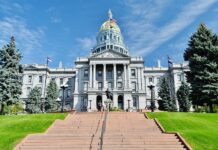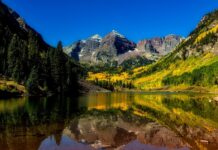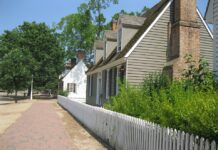▌This amazing trip through the White Mountains of New Hampshire includes gorgeous views, a visit to the home of the world wind speed record, and one of most scenic train rides in the east…
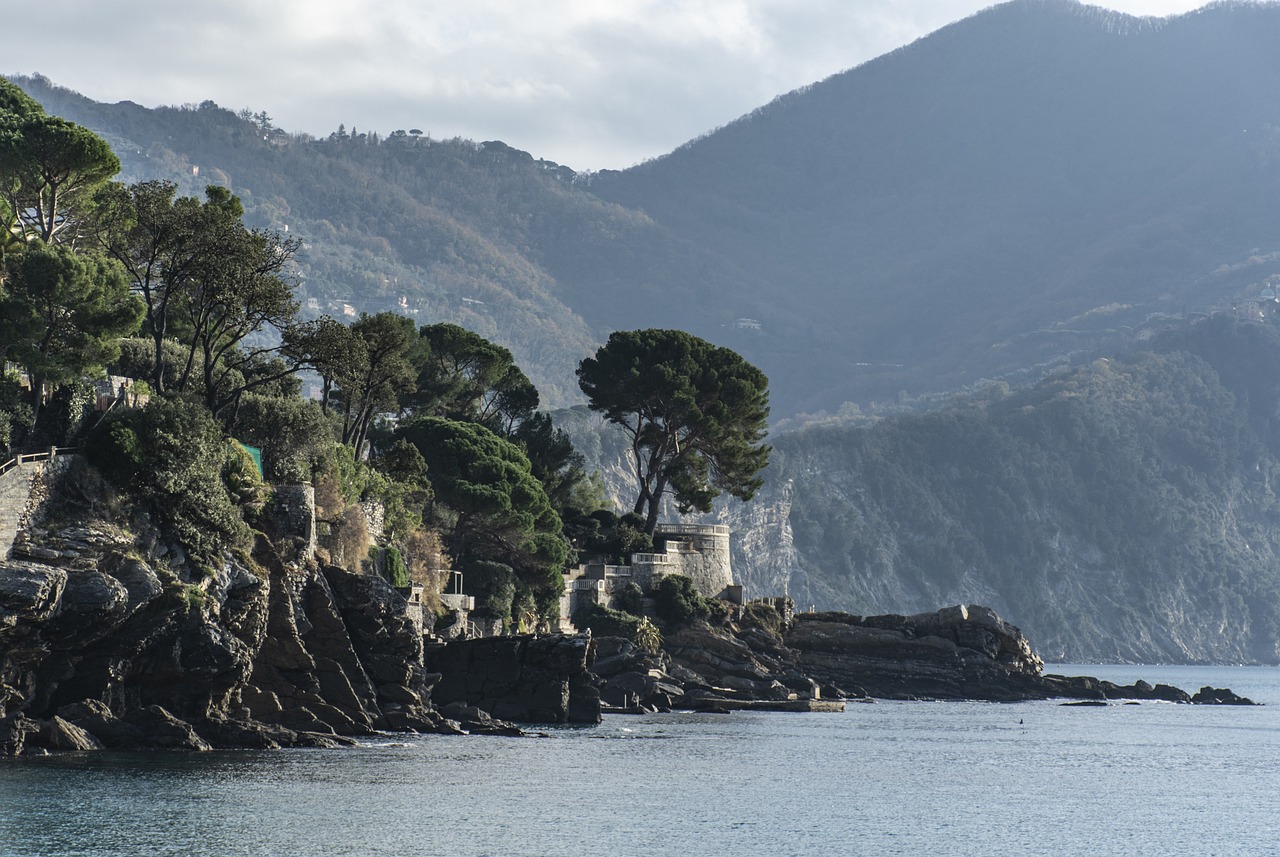
The White Mountain National Forest is a 4-hour drive north of Boston, Massachusetts. Deep in New Hampshire, the mountains are part of the Appalachian Mountain system that covers the Eastern United States. Within the forest park is the White Mountains Trail, and it’s a drive that’s arguably the most scenic 100 miles in New England. Here’s a selection of my favorite stops along the way – some of them require prior planning and are day trips in themselves.
WHITE MOUNTAIN NATIONAL FOREST VISITOR CENTER
Most people begin the drive from the White Mountains Visitor Center in North Woodstock on route 112 and head out on route 3N to the Franconia Notch area.
If you’re traveling with kids then you’ll want to pencil dates back in this area at the Clark’s Trading Post, and The Whale’s Tale attractions — both in Lincoln on route 3N. At Clark’s you can see Bears, ride a steam train, climb towers, and generally keep the young ones happy. The Whale’s Tale is a water park with a wave pool, picnic areas, and live entertainment.
Back on the road head north towards Franconia Notch, and shortly you’ll see the sign for our first stop – the Flume Gorge.
THE FLUME GORGE
The Flume Gorge was formed over 200 million years ago when the White Mountains were molten rock. As the terrain here cooled quickly, softer material was forced into the fractures that formed. These fractures wore down with natural erosion much quicker that the surrounding granite rock — leaving the gorge. And so now you get to enjoy a geological wonder at the base of beautiful Mount Liberty.
The Gorge has a visitor center where your tour starts and ends, one of the oldest covered bridges on the White Mountains Trail, and some dramatic photo opportunities.
Continue to head north on Route 3 until it joins Route 302 and follow 302 towards Bretton Woods. Here the mountains get taller and taller until eventually you see the grand daddy of them all — Mount Washington at 6,288 feet.
THE ROOF OF THE WHITE MOUNTAIN NATIONAL FOREST…
Depending on time available, you’ve got three options for experiencing Mount Washington: take the Cog Railway train ride to the top, drive the auto road to the summit — the quickest way, or you can hike if you’re well prepared. But don’t consider hiking to the top unless you’re in great condition and with somebody. This mountain claims lives every year – even in the summer – as conditions in this area can deteriorate dramatically within minutes.
And yes, it’s worth getting to the summit. On a clear day the view is stunning. Visit the museum at the top and learn about the day in 1934 when the highest wind speed ever recorded on earth was taken – 231 MPH. You’ll learn why its unique geographic position provides the mountain with the worst weather on earth.
Now get back onto Route 302 and head south to the town of North Conway.
THE CONWAY SCENIC RAILROAD
Schedule at least enough time to take the shorter valley scenic train, which you board in North Conway. The train rides offer wonderful views of the scenic valleys and notches in the surrounding area.
The valley train is a 55-minute roundtrip, and the Notch train is 5 hours. Both have a first-class car if you want to have a different experience. The notch train has a dome car as well, where you get magnificent views of the steep ravines and sheer bluffs. The trains usually run from mid-June until mid-October.
THE KANCAMAGUS HIGHWAY
Let’s finish up our White Mountains Trail tour by joining back up with route 112 at Conway and driving back to the White Mountain National Forest Visitor Center.
Route 112, or as its better known the Kancamagus Highway, is the only road that runs directly east and west through the heart of the White Mountain National Forest. This is a dramatic road that shows off the magnificence of one of New Hampshire’s best-loved scenic spots. From this road your vistas include wilderness and the highest peaks in the presidential range.
During the summer and fall foliage months you’re likely to have plenty of company on your drive. But if the weather is clear who cares if the going is a little slow – this isn’t a drive to rush anyway. But it’s a magnificent end to our 100-mile scenic drive.
Source: LeGuide





















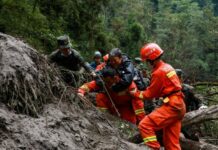




![Le chocolatier suisse Läderach développe une histoire d’amour avec la Chine [ INTERVIEW ]](https://www.afrique-54.com/wp-content/uploads/2023/12/Johannes-Laderach-et-chocolat-e1702548585357-218x150.jpg)






